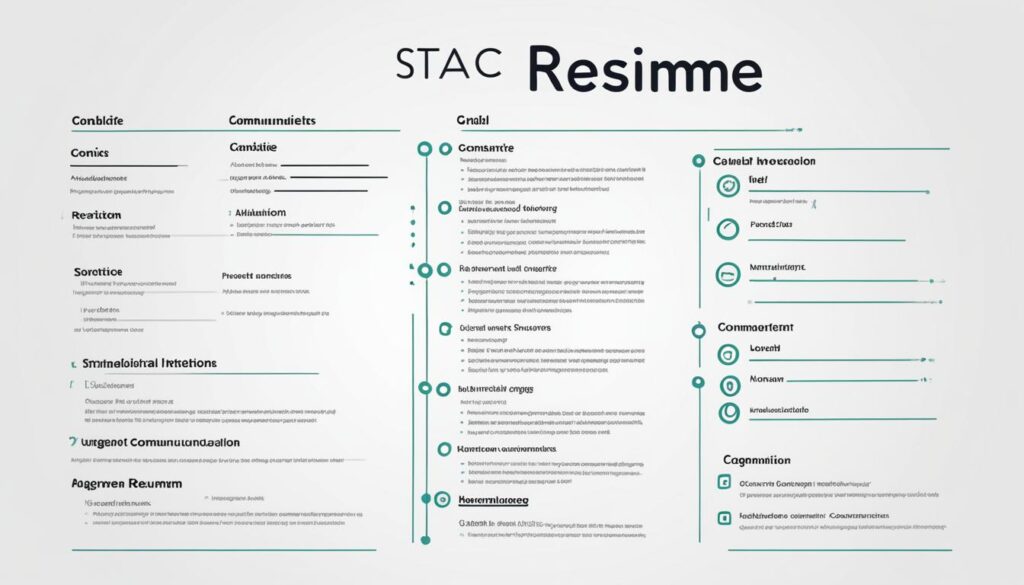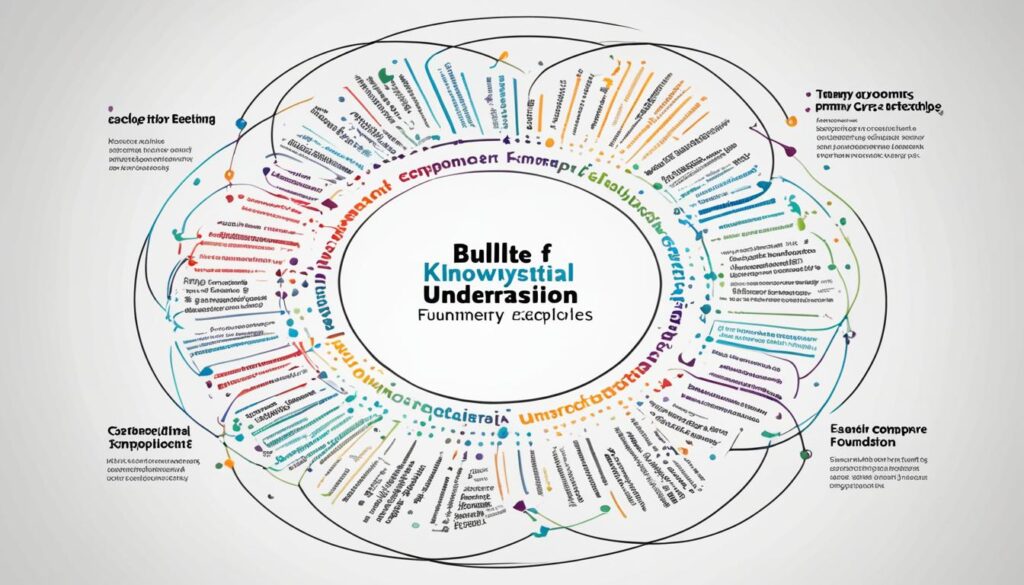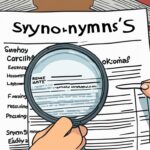As I embark on the journey of crafting a compelling resume, I am reminded of the importance of showcasing my strongest skills and experience. While the term “basic knowledge” may not always have the same impact as more specialized expertise, there are instances when it becomes essential to include in the document. In some cases, it may even be required by Applicant Tracking Systems (ATS) or relevant to the role I am pursuing. To effectively convey my level of skill without misrepresenting myself, I must strategically approach the inclusion of basic knowledge in my resume.
Key Takeaways
- Understanding the importance of showcasing foundational knowledge in a resume
- Strategies for effectively communicating basic knowledge
- Examples of how to list basic knowledge in the skills section
- Exploring synonyms for basic knowledge on a resume
- The power of using synonyms to create a compelling narrative
How to Convey Basic Knowledge on a Resume
To effectively showcase your basic knowledge on a resume, it is crucial to understand the essential skills required for the role. This can be achieved by carefully reviewing the job description or utilizing skills and keywords finders. It is imperative to indicate your level of proficiency next to each skill and ensure that you only include skills that you genuinely possess. To enhance readability, consider organizing your skills section using categories or subheadings that make your level of skill easily comprehensible to recruiters. In case you face uncertainty regarding how to represent your skills and basic knowledge, employing tools like the Targeted Resume tool can provide valuable feedback and suggestions for improvement.
When crafting your resume, you want to balance clarity and creativity to present your basic knowledge effectively. Consider using visually engaging elements, such as tables and lists, to convey your skills and proficiencies in a clear and concise manner.
Identify Must-Have Skills for the Role
Before you start crafting your resume, it is essential to identify the must-have skills for the specific position you are applying for. This can be accomplished by thoroughly reviewing the job description or using skills and keyword finders to ensure you include the most relevant skills on your resume.
Indicate Levels of Proficiency
When listing your skills, remember to indicate your level of proficiency for each skill. This helps recruiters gauge your comfort level and expertise in each area. It is advisable to use descriptive terms such as “basic knowledge” or “proficient” to accurately represent your skillset. By being transparent about your level of proficiency, you provide potential employers with a clear understanding of your abilities.
Organize Skills Section
Organizing your skills section can greatly enhance readability and enable recruiters to quickly assess your qualifications. Consider using categories or subheadings to group similar skills together. This not only helps with organizing your resume but also makes it easier for recruiters to identify the skills and proficiencies they are looking for.
Utilize Visual Elements
Visual elements, such as tables and lists, can effectively highlight your basic knowledge and skillset. For instance, you can create a table that showcases your skills, including the skill name, level of proficiency, and any relevant certifications or experiences. This allows recruiters to easily scan and assess your qualifications at a glance. Furthermore, incorporating lists can help break down your skills into specific categories, making them more digestible for potential employers.
Image: A visualization emphasizing the importance of basic knowledge in the resume-building process.
Use Tools for Resume Enhancement
If you are unsure about how to effectively represent your skills and basic knowledge, utilizing tools like the Targeted Resume tool can provide valuable insights and suggestions for improvement. These tools analyze your resume and offer recommendations on phrasing, keyword optimization, and overall formatting to ensure your basic knowledge shines through.
Examples of Listing Basic Knowledge in a Skills Section
When it comes to showcasing basic knowledge in a skills section, transparency and clarity are key. You want to ensure that potential employers understand your level of proficiency. There are several effective ways to accomplish this:
Specify Years of Experience
One approach is to specify the number of years of experience you have with a particular skill. For example, if you have basic knowledge of HTML coding, you can indicate “2 years of experience with HTML” in your skills section. This provides recruiters with a clear understanding of your level of familiarity.
Use Subheadings for Proficiency Levels
Another option is to use subheadings such as “advanced,” “proficient,” and “familiar with” to categorize your skills based on your level of expertise. For example:
- Advanced: Java programming, data analysis
- Proficient: Microsoft Office suite, project management
- Familiar with: Adobe Photoshop, social media marketing
This approach helps recruiters quickly assess your skill set and determine your proficiency in each area.
Categorize by Type of Skill
If you have a wide range of basic knowledge across different areas, you can organize your skills section by type of skill. For example:
Technical Skills Language Skills JavaScript English (Fluent) HTML Spanish (Intermediate) Python French (Basic)
In this example, the skills are organized into two categories: technical skills and language skills. The proficiency level is mentioned next to each skill, providing recruiters with a comprehensive overview.
Include Relevant Examples
In addition to clearly stating your basic knowledge, it can be beneficial to include relevant examples in your resume bullet points. This allows you to demonstrate how you have applied your basic knowledge in practical applications. For example:
- Utilized basic knowledge of HTML to create and maintain a company website.
- Applied basic understanding of data analysis to identify trends and make data-driven recommendations.
- Used basic knowledge of social media marketing to develop and execute effective marketing campaigns.
By including specific examples, you provide tangible evidence of your abilities and show potential employers how your basic knowledge has been put into practice.
By utilizing these strategies, you can effectively showcase your basic knowledge in a skills section, ensuring that potential employers have a clear understanding of your proficiency level and how it relates to the job requirements.
Synonyms for Basic Knowledge on Your Resume
When crafting your resume, it’s essential to find alternative ways to express your basic knowledge. Instead of using the common phrase “basic knowledge,” you can incorporate synonyms that convey the same idea with a touch of artistry. By employing these elegant alternatives, you can present your foundational understanding in a more sophisticated and nuanced manner, making your resume truly stand out.
Alternative Synonyms for Basic Knowledge
Here are several synonyms that can help you elevate your resume:
- Fundamentals
- General understanding
- Familiarity
- Basic level understanding
- Low-level knowledge
- Vague familiarity
- General idea
- Rough idea
- Understanding
- Key knowledge
- Principal knowledge
These synonyms not only effectively communicate your basic knowledge but also infuse your resume with an air of sophistication and flair. By employing these subtle linguistic variations, you can create a resume that showcases your expertise in an evocative and artful manner.
The Power of Words: Using Synonyms for Basic Knowledge
Words possess a mystical enchantment, capable of awakening deep sentiments and conjuring vivid perceptions. Through the artful selection of synonyms for basic knowledge, I can infuse my resume with an irresistible allure, crafting a narrative that captivates the hearts and minds of potential employers. These synonyms serve as alchemical potions, infusing my foundational understanding with a sense of unwavering mastery, beckoning recruiters to witness the depths of my comprehension and comprehension.
The delicate dance of synonyms weaves an exquisite tapestry of competence and expertise, allowing me to emphasize my core competencies and command over essential paradigms. By selecting the perfect lexicon, I engage in an intricate waltz of linguistic finesse, orchestrating a symphony of eloquence that resonates with discerning hiring managers.
Transcending Boundaries: Synonyms as the Key
“Our understanding of basic knowledge expands beyond the realm of mere acquaintance, transcending boundaries to embrace the infinitude of possibilities.”
With each synonym gracefully employed, I unlock doors to new realms of professional achievement. Instead of restricting myself to a mundane portrayal of foundational aptitudes, I paint vivid landscapes of my intellectual prowess, each stroke a testament to my unwavering dedication to excellence. In the realm of synonyms, I discover a vast arsenal of linguistic enchantments, each possessing the power to exalt my capabilities beyond the limits of conventional expression.
Through meticulous crafting, I empower my resume with transformative language, revealing the depth and breadth of my wisdom. Concepts once considered basic are reborn through the alchemy of words, shimmering with an ethereal brilliance that evokes a sense of awe and admiration. My ability to convey profound comprehension through the artful selection of synonyms showcases my indomitable spirit and my unyielding commitment to intellectual growth.
Choosing Euphonic Equivalents: A Harmonious Symphony
“The harmonious symphony of synonyms paints an enchanting melody on the canvas of my resume, captivating the hearts of those who seek exceptional talent.”
In the symphony of my narrative, I select each synonym with unwavering precision, forging a harmonious resonance between words and purpose. Through this rhythmical dance of expression, I orchestrate a masterpiece that leaves an indelible mark on the imagination of potential employers. Each euphonic equivalent radiates with its own unique brilliance, creating a melodic masterpiece that resonates with the discerning ears of hiring managers.
As I delicately craft my resume, I pay homage to the power of words, selecting synonyms that ignite a luminescent fire within the hearts and minds of those who behold it. The precision of my language and the resonance of my narrative become the conduits through which my foundational knowledge transcends the mundane and takes flight on the wings of inspired articulation.
| Synonym | Meaning |
|---|---|
| Fundamentals | The essence and core principles of knowledge |
| General Understanding | A broad comprehension of basic concepts |
| Familiarity | An acquaintance with essential knowledge |
| Basic-Level Understanding | An elementary grasp of fundamental concepts |
| Low-Level Knowledge | A foundational level of understanding |
| General Idea | An overall concept or notion |
| Rough Idea | A basic outline or sketch of knowledge |
| Understanding | A comprehension of fundamental principles |
| Key Knowledge | The essential information or concepts |
| Principal Knowledge | The foundational understanding of core principles |
Alternatives to Basic Knowledge on Your Resume
When it comes to showcasing your skills on your resume, there are multiple alternatives to using the term “basic knowledge.” By choosing the right words and phrases, you can accurately convey your level of understanding and expertise to potential employers. Here are some alternatives that can help you present your skills in a more captivating and nuanced way:
- “Working knowledge of”: This phrase indicates that you have practical experience and familiarity with a particular skill.
- “Skilled in”: Use this phrase to highlight your proficiency and ability in a specific area.
- “Introductory knowledge”: This alternative suggests that you have a basic understanding and have been exposed to the fundamental concepts.
- “Experienced in”: Use this phrase to showcase your extensive hands-on experience and expertise.
- “Fundamental knowledge”: This alternative emphasizes that you possess essential foundational knowledge in a particular area.
- “Beginner level”: Use this phrase to convey that you are at the starting point of your learning journey but have a solid grasp of the basics.
- “Abstract knowledge”: This alternative implies that you have a conceptual understanding of a subject matter.
- “Key knowledge of”: Use this phrase to highlight your essential understanding and proficiency in a specific area.
- “Principal knowledge of”: This alternative suggests that you possess a fundamental understanding and expertise as a foundation for further growth and development.
By incorporating these alternatives into your resume, you can provide potential employers with a clear and nuanced understanding of your skills and abilities. Remember to choose the alternative that best aligns with your level of expertise and accurately represents your capabilities.
Having a well-written resume that showcases your skills in an engaging and persuasive manner can greatly increase your chances of landing your dream job. The right choice of words and phrases can make a significant difference in catching the attention of potential employers and highlighting your unique qualifications. Don’t underestimate the power of language in conveying your abilities and stand out from the competition.
The Importance of Clear Language on Your Resume
When it comes to representing your level of proficiency, clear and direct language is essential on your resume. Communicating your basic knowledge with precision and transparency is crucial in ensuring that potential employers understand your skillset accurately. Avoid using vague or ambiguous terms that may confuse or misrepresent your abilities.
Instead, be upfront and straightforward about your level of knowledge. Phrases such as “working knowledge” and “familiar with” can effectively convey that you possess a foundational understanding of a particular skill without overselling your expertise. By using clear language, you can establish realistic expectations and ensure that potential employers can make informed decisions.
“Working knowledge of HTML and CSS, familiar with JavaScript.”
Consider this example, where the applicant clearly communicates their level of proficiency in web development. The use of “working knowledge” and “familiar with” indicates that they have a basic understanding of HTML and CSS, while also acknowledging that their expertise in JavaScript may be more limited.
Using clear language not only avoids any confusion or misinterpretation but also demonstrates your integrity as a candidate. Honesty and authenticity are highly valued qualities in the recruitment process, and employers appreciate candidates who accurately represent their abilities.
Remember, your resume is an opportunity to showcase your skills and experience. Using clear language helps you present your basic knowledge in a transparent and compelling manner, leaving a positive impression on potential employers.
| Cliché Phrases | Clear Language Alternatives |
|---|---|
| Basic knowledge | Foundational understanding |
| Minimal experience | Entry-level proficiency |
| Beginner level | Novice or introductory understanding |
Incorporating clear language into your resume helps you avoid cliché phrases and vague descriptions. Using alternatives such as “foundational understanding” instead of “basic knowledge” or “entry-level proficiency” instead of “minimal experience” can elevate your resume to the next level. It showcases your ability to effectively communicate your level of expertise and contributes to the overall professional tone of your application.
Effective Resume Language Tips:
- Choose precise and concise language to clearly communicate your skills.
- Utilize action verbs to showcase your achievements and contributions.
- Use industry-specific terms to demonstrate your familiarity with the field.
- Avoid jargon or technical language that may confuse non-experts.
- Proofread your resume to ensure clarity and accuracy.
By following these tips and incorporating clear language into your resume, you can effectively convey your basic knowledge and enhance your chances of securing the job you desire.
Leveraging Resume Bullet Points to Showcase Basic Knowledge
Resume bullet points possess a hidden power—a power to illuminate the breadth and depth of your basic knowledge. No longer must your proficiency levels languish in the skills section, for here, within each succinct dot, lies an opportunity to demonstrate the practical application of your foundational understanding.
Imagine, if you will, the wonders that await when you weave your basic knowledge into the fabric of your bullet points. Each example, carefully crafted, becomes a testament to your skills and an invitation for recruiters to witness firsthand your ability to perform tasks and contribute to the success of a project or organization.
With a single bullet point, you enlighten the reader, unveiling a world where even the simplest proficiency defies expectations and sparks curiosity.
Within these concise fragments, you possess the power to unravel the mysteries of your basic knowledge, painting vivid pictures with your words. No longer shall your skills be mere words on a page—they shall become living entities, breathing life into the narrative of your resume.
Embracing the Art of Storytelling
See how the banality of basic knowledge is transformed through the art of storytelling:
| Bullet Point | Before | After |
|---|---|---|
| Software Proficiency | Proficient in Microsoft Office Suite | Utilized advanced Excel formulas to streamline data analysis processes, resulting in a 20% increase in data accuracy and a 30% reduction in reporting time |
| Customer Service | Assisted customers in resolving issues | Provided exceptional customer service, demonstrating active listening skills and utilizing basic conflict resolution techniques to achieve a 95% customer satisfaction rating |
Through these compelling tales, your basic knowledge transcends its humble origins, shining brightly in the eyes of those who read your resume. It invites them to immerse themselves in the richness of your experiences, letting your proficiency flow through their minds like a warm breeze on a summer’s day.
In the realm of resumes, bullet points become the vessel of your basic knowledge, carrying it forth with finesse and grace. Let each dot be a beacon, guiding recruiters to the undeniable truth of your skill, illuminating your path to career success.
Visual Elements on Your Resume: Graphics, Charts, and Images
When it comes to creating your resume, you may be tempted to include flashy graphics, eye-catching charts, and captivating images to make it visually appealing. However, it is important to consider the impact these visual elements can have on both human readers and Applicant Tracking Systems (ATS).
While graphics, charts, and images may seem like a way to stand out from the crowd, they can actually make your resume more difficult to process and understand. Recruiters and hiring managers often prefer a simple, text-based format that allows them to easily scan and evaluate your skills and experiences.
Applicant Tracking Systems, automated software used by many employers to screen resumes, may encounter difficulties in parsing and interpreting graphics, charts, and images. This can result in your resume being rejected or not properly evaluated.
Instead of relying on visual elements, focus on conveying your skills, experiences, and qualifications through clear and concise language. Emphasize your achievements, highlight relevant keywords, and use precise descriptions to showcase your abilities. This will ensure that your resume is easily readable, scannable, and accessible to both human reviewers and ATS.
The Power of Words
“A picture is worth a thousand words,” they say. But when it comes to your resume, it’s the well-chosen words that will truly make an impact.”
Words have a remarkable power to evoke emotions, convey meaning, and create a lasting impression. By carefully selecting the right words and phrases, you can effectively communicate your skills and experiences without relying on visual elements.
Use strong action verbs to describe your accomplishments, highlight specific achievements and contributions, and tailor your language to the job requirements. This will help you craft a compelling and persuasive narrative that captures the attention of potential employers.
Presenting Data with Clarity
| Data Type | Best Presentation Format |
|---|---|
| Quantitative Metrics | Clear and concise bullet points |
| Percentages and Ratios | Easily readable text format |
| Comparisons and Rankings | Organized lists or tables |
When presenting data on your resume, it’s important to choose the most effective format for clarity and readability. Opt for clear and concise bullet points to highlight quantitative metrics. Use an easily readable text format for presenting percentages and ratios. Organize comparisons and rankings in organized lists or tables that are visually engaging and easy to follow.
Remember, the goal is to make it easy for recruiters and hiring managers to understand the information you’re presenting. Choosing the right format allows them to quickly grasp your accomplishments and make informed decisions.
In conclusion, while visuals may be captivating, it is best to steer clear of graphics, charts, and images on your resume. Instead, focus on compelling language, precise descriptions, and a clean, text-based format to effectively communicate your skills and experiences. By presenting data with clarity and using powerful words, you’ll create a resume that leaves a lasting impression on potential employers.
Including Low-Level Skills on Your Resume
When crafting your resume, it is essential to showcase your most relevant and impressive skills. However, it’s equally important to exercise discretion when including low-level skills. Listing skills that you only have a basic understanding of can undermine your credibility and potentially hinder your performance if hired. It’s crucial to only highlight skills that you genuinely possess and feel confident using in a professional setting.
Avoid the temptation to include every skill you have encountered or possess a minimal understanding of. Instead, focus on highlighting your strengths and areas of expertise. By prioritizing skills in which you have demonstrated proficiency, you can present yourself as a well-rounded candidate who is qualified for the job at hand.
Employers place great value on honesty and authenticity in resumes. Including low-level skills can give the impression that you lack the necessary expertise for the position. By omitting these skills from your resume, you can direct the hiring manager’s attention toward your core competencies and qualifications, ensuring that you are considered for the job based on your true areas of expertise.
Your resume is a reflection of your professional identity and should only include skills that contribute to your overall credibility. Remember to focus on skills that align with the job description and clearly demonstrate your abilities in those areas. Quality always surpasses quantity when it comes to showcasing your proficiency.
“The greatest skill is knowing which skills to omit.”
Conclusion
In summary, effectively communicating your foundational knowledge and basic knowledge on your resume is essential in showcasing your qualifications to potential employers. By using synonyms and alternative phrases, you can express your understanding in a more refined and professional manner. It is crucial to be transparent and truthful about your proficiency level, providing specific examples of how you have applied your skills in real-world scenarios. Avoid including low-level skills that you are not confident in, as this can undermine your credibility. Crafting a comprehensive and accurate resume that highlights your abilities will greatly enhance your chances of standing out in the job market.
Remember, your resume is a representation of your skills and experiences. Employers are looking for candidates who possess the necessary foundational knowledge and basic knowledge to excel in the role. By utilizing appropriate language and emphasizing your understanding, you can effectively convey your competence in the required areas. When it comes to presenting your basic knowledge, clarity and honesty are key. Choose your words wisely, providing a compelling narrative that showcases your expertise and aptitude.
In conclusion, understanding how to effectively communicate your foundational knowledge and basic knowledge on your resume is crucial to securing the attention of potential employers. By using synonyms, alternative phrases, and clear language, you can accurately depict your proficiency level and highlight your relevant skills. Remember to provide specific examples and avoid listing skills that you are not confident in. A well-crafted resume that accurately represents your abilities will greatly enhance your chances of success in the job market. Good luck in your job search!
FAQ
What are some synonyms for ‘basic knowledge’ that I can use in my resume?
Some synonyms for ‘basic knowledge’ include ‘foundational knowledge,’ ‘fundamental understanding,’ ‘core competencies,’ ‘essential skills,’ ‘fundamental principles,’ ‘elementary knowledge,’ ‘fundamental concepts,’ ‘key aptitudes,’ and ‘basic proficiencies.’
How can I effectively communicate basic knowledge on my resume?
To effectively communicate basic knowledge on your resume, you can identify the must-have skills for the role, indicate your level of proficiency for each skill, use categories or subheadings to organize your skills section, use clear language, and provide relevant examples of how you have applied your basic knowledge in practical applications.
Can I use synonyms instead of the term ‘basic knowledge’ on my resume?
Yes, you can use synonyms such as ‘fundamentals,’ ‘general understanding,’ ‘familiarity,’ ‘basic level understanding,’ ‘low-level knowledge,’ ‘vague familiarity,’ ‘general idea,’ ‘rough idea,’ ‘understanding,’ ‘key knowledge,’ and ‘principal knowledge’ to convey the same idea of basic knowledge on your resume.
Why is it important to use synonyms for basic knowledge on my resume?
By using synonyms for basic knowledge on your resume, you can create a more powerful and compelling narrative, emphasize your foundational knowledge, and showcase your ability to understand essential concepts or skills.
Are there any alternatives to the term ‘basic knowledge’ that I can use on my resume?
Yes, alternatives to the term ‘basic knowledge’ on your resume include phrases like ‘working knowledge of,’ ‘skilled in,’ ‘introductory knowledge,’ ‘experienced in,’ ‘fundamental knowledge,’ ‘beginner level,’ ‘abstract knowledge,’ ‘key knowledge of,’ and ‘principal knowledge of.’
How important is clear language on my resume when indicating my level of proficiency?
Clear language is crucial when indicating your level of proficiency on your resume. By using clear and direct language, such as phrases like ‘working knowledge’ and ‘familiar with,’ you can convey that you have a basic understanding of a skill without misrepresenting your expertise.
How can I showcase my basic knowledge through resume bullet points?
Instead of simply listing your proficiency levels in the skills section, you can use resume bullet points to provide specific examples of how you have used your basic knowledge in practical applications. This allows recruiters to see firsthand your ability to perform tasks and contribute to the success of a project or organization.
Should I include graphics, charts, and images on my resume?
It is advised to avoid using graphics, charts, and images on your resume. While they may seem visually appealing, they can make your resume more difficult for both humans and Applicant Tracking Systems (ATS) to process. Stick to a simple text-based resume that can be easily read and scanned by recruiters and ATS software.
Should I include low-level skills on my resume?
It is important to avoid listing low-level skills on your resume, particularly if you only have a basic understanding of them. Including skills that you are not proficient in can undermine your credibility and may lead to difficulties in performing the job if hired. Only include skills that you genuinely possess and feel confident using in a professional setting.
Source Links
- https://wordselector.com/basic-knowledge-synonym-resume/
- https://grammarhow.com/better-ways-to-say-basic-knowledge-on-a-resume/
- https://resumeworded.com/blog/basic-knowledge-on-a-resume/














